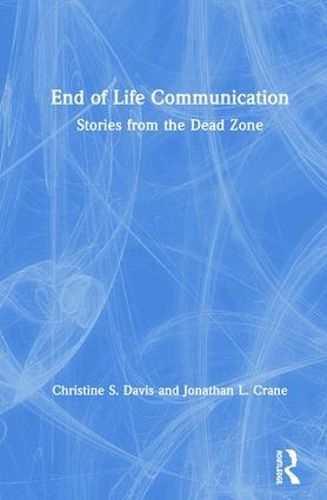Readings Newsletter
Become a Readings Member to make your shopping experience even easier.
Sign in or sign up for free!
You’re not far away from qualifying for FREE standard shipping within Australia
You’ve qualified for FREE standard shipping within Australia
The cart is loading…






This book examines the dialectic between fictional death as depicted in the media and real death as it is experienced in a hospital setting.
Using a Terror Management theoretical lens, Davis and Crane explore the intersections of life and death, experience and fiction, to understand the relationship between them. The authors use complementary perspectives to examine what it means when we speak and think of death as it is conceived in cultural media and as it is constructed by and circulates between patients, health professionals, and supportive family members and friends.
Layering analysis with evocative narrative and an intimate tone, with characters, plot, and action that reflect the voices and experiences of all project participants, including the authors’ own, Davis and Crane reflect on what it means to pass away. Their medical humanities approach bridges health communication, cultural studies, and the arts to inform medical ethics and care.
$9.00 standard shipping within Australia
FREE standard shipping within Australia for orders over $100.00
Express & International shipping calculated at checkout
This book examines the dialectic between fictional death as depicted in the media and real death as it is experienced in a hospital setting.
Using a Terror Management theoretical lens, Davis and Crane explore the intersections of life and death, experience and fiction, to understand the relationship between them. The authors use complementary perspectives to examine what it means when we speak and think of death as it is conceived in cultural media and as it is constructed by and circulates between patients, health professionals, and supportive family members and friends.
Layering analysis with evocative narrative and an intimate tone, with characters, plot, and action that reflect the voices and experiences of all project participants, including the authors’ own, Davis and Crane reflect on what it means to pass away. Their medical humanities approach bridges health communication, cultural studies, and the arts to inform medical ethics and care.